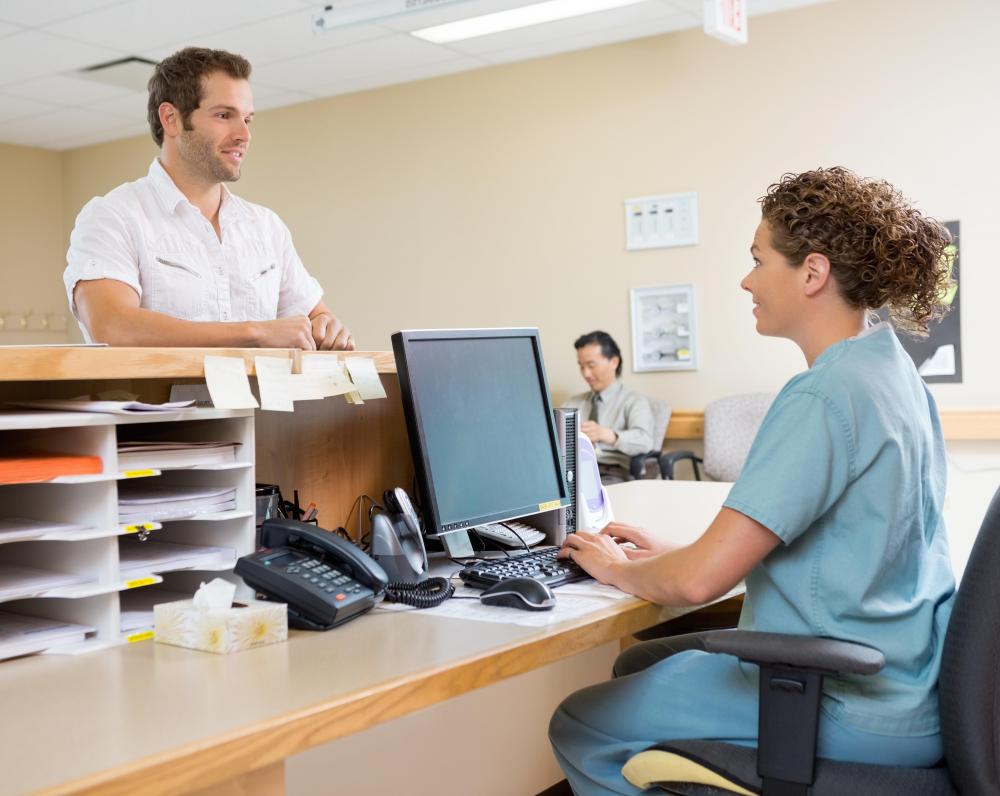At WiseGEEK, we're committed to delivering accurate, trustworthy information. Our expert-authored content is rigorously fact-checked and sourced from credible authorities. Discover how we uphold the highest standards in providing you with reliable knowledge.
How do I Become a Patient Service Coordinator?
For individuals who want to become a patient service coordinator, various pathways to this fulfilling medical career can consist of either experience, education, or a mix of both. Experience with medical billing and medical coding is often desirable for this role. Patient service coordinators will frequently handle medical records and medical files, as well as providing customer service for a hospital or other health care facility.
Someone who wants to become a patient service coordinator should have a basic high school degree. Above this level of education, some programs including college associate’s degrees offer certification or other concrete qualifications for becoming a professional patient service coordinator. Most of the rest of what qualifies individuals for this kind of career consists of hands-on experience in a medical setting, including handling patient scheduling, data requests, or diverse service provisions like HIPAA (Health Insurance Portability and Accountability Act) compliance, or providing concessions.

Although a patient service coordinator will often handle customer service aspects of a patient’s experience, much of what these professionals do is related to health insurance knowledge and health care billing. That’s why one avenue into the patient service coordinator role consists of hands-on work in a hospital insurance department, or other similar office. Professionals who understand the details of medical billing will be able to better help patients deal with the process of submitting medical bills for payment by their insurers. This is often a part of the services that a patient service staff member provides, as well as general patient registration, where these professionals collect data from a patient on arrival.

In some cases, a previous background in customer service qualifies an individual to be a patient service coordinator. In some health care facilities, this role involves directing patients through physical parts of a care system, explaining treatments and procedures, or talking to family members about a patient’s care. Good people skills can be valuable for someone who wants to become a patient service coordinator, since the focus of this role is on helping patients navigate their health care experiences. Patient service coordinators might also serve in a consultant role, suggesting best practices for routing patient traffic, or how to improve the layout or other aspects of a facility for overall accessibility; a greater involvement in hospital administration may be an incentive for someone to become a patient service coordinator.
AS FEATURED ON:
AS FEATURED ON:
















Discuss this Article
Post your comments